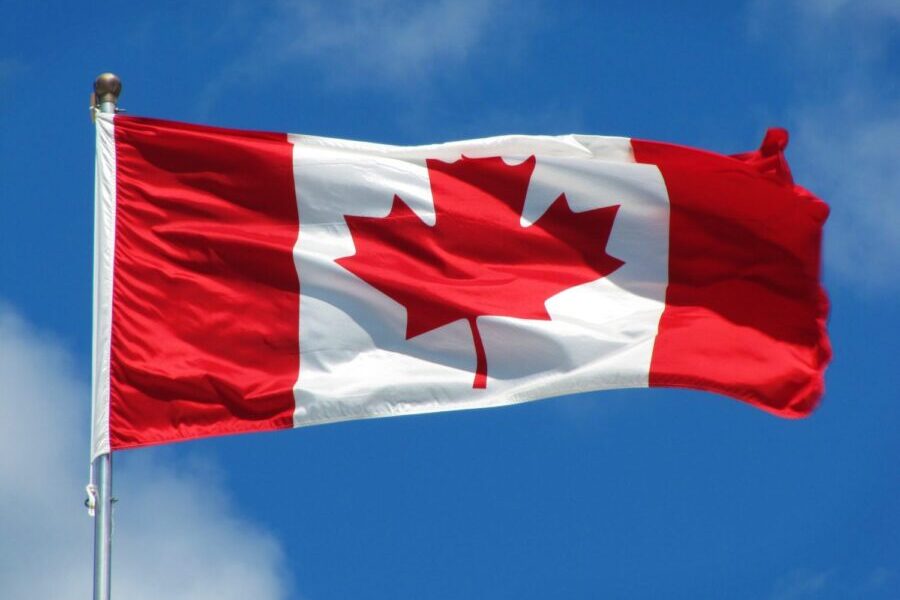Federal bill targeting sports betting ads advances in Canadian Senate

Lawmakers from the Canadian Senate Transport and Communications Committee have advanced a bill, S-211, that would restrict sports betting ads.
The vote comes amid growing concerns over the amount of sports betting advertising in Canadian media since the country legalized single-event wagering in 2021.
According to Blacklock’s Reporter, the bill’s preamble notes that gambling advertising has become pervasive and cites research linking increased exposure to higher rates of participation.
If passed, it would require the federal cabinet to develop a national framework to regulate and restrict sports betting ads. This version echoes a previous one that passed the Senate in November 2024 but died when Parliament was prorogued in January.
Senator Marty Deacon reintroduced the bill in June and has been critical of the lack of regulatory safeguards since legalization.
In an earlier debate, Deacon stated, “It makes absolutely no sense to wait for these problems to arise and then react to them at which point tens of thousands of Canadians’ lives will have been devastated through problem gambling.”
Major sports organizations, including the NHL and Canadian Football League, have opposed the bill.
Still, public concern over gambling-related harm continues to mount as advertisements remain prominent across Canadian broadcasts and media.
Charlotte Capewell brings her passion for storytelling and expertise in writing, researching, and the gambling industry to every article she writes. Her specialties include the US gambling industry, regulator legislation, igaming, and more.
Verticals:
Sectors:
Topics:
Dig Deeper
The Backstory
Why the ad fight returned to Ottawa
Canada’s latest push to curb sports betting marketing is not happening in a vacuum. The renewed bill before the Senate, S-211, reflects mounting unease with the volume and placement of gambling promotions since single-event wagering became legal nationwide in 2021. Senators on the Transport and Communications Committee voted to advance the measure, which would task the federal cabinet with designing a national framework to restrict sports betting ads across media and platforms. The proposal closely mirrors a version that cleared the Senate in late 2024 but died with the prorogation of Parliament in January, prompting Sen. Marty Deacon to bring it back in June.
The scope and timing matter. Deacon and allies argue Ottawa moved quickly to liberalize wagering but left a regulatory void around advertising standards that provinces and broadcasters have filled unevenly. The current text would set federal guardrails and leave room for provincial execution, an attempt to balance constitutional realities with the nationwide reach of sports broadcasts. The committee’s move follows months of scrutiny and signals that the issue, once seen as provincial, has become a national policy question as campaigns saturate prime-time sports and social feeds.
Advancing from committee is only the first step, but it reopens a legislative path that was cut short. Blacklock’s Reporter first noted the bill’s preamble cites research linking exposure to gambling ads with higher participation rates. That message has resonated as playoff seasons delivered a fusillade of in-game spots, jersey placements and influencer tie-ins. For a detailed look at the committee vote and context, see coverage of the Senate panel advancing S-211, and the official bill page at Parl.ca.
From S-269 to S-211: what changed
The measure now moving through the Senate is the successor to Deacon’s earlier effort, S-269, which spurred hearings in 2023 and 2024 before the session collapsed. That version sought a national framework to set limits on the scope, placement and volume of ads while curbing the use of celebrities and athletes. Deacon’s reintroduction underscores continuity of intent, but the ecosystem around the bill has shifted. Industry groups now cite data suggesting ad volumes have already eased since the initial spending burst. Research from thinktv, for example, points to a drop in gambling-related TV ads from 442 in 2022 to 189 in 2024, according to testimony referenced by stakeholders. That analysis is available through thinktv’s responsible advertising research.
At the same time, major leagues have lined up against a federal clampdown. The National Hockey League and Canadian Football League opposed S-211 in committee, echoing a stance developed during the S-269 debates. They argue uniform national restrictions could undercut sponsorship revenue and push bettors toward illegal markets. The Canadian Gaming Association, seeking a middle path, told lawmakers last year it was crafting a code of conduct for operators, attempting to pre-empt broad federal intervention.
The throughline from S-269 to S-211 is a search for durable standards that reflect lessons from early legalization—where ad blitzes provoked public backlash and regulators reacted piecemeal. For background on the earlier initiative and why it resurfaced, see our report on Deacon relaunching the ad-limits bill and the historical record of S-269 on Parl.ca.
A regional patchwork raises pressure
Canada’s debate mirrors a broader North American scramble to reconcile rapid market growth with guardrails on marketing and consumer protection. U.S. states are still calibrating their approaches—and their politics offer cautionary notes. In Hawaii, where gambling remains largely illegal, lawmakers advanced House Bill 1308 to permit online sports wagering and fantasy contests after divided testimony. Supporters emphasized new revenue and channeling demand into regulated products, while opponents warned of inflated revenue projections and social costs. DraftKings told legislators that any legal market must be competitive with offshore books that avoid taxes and compliance costs, highlighting the tension between consumer protection and commercial viability.
Nebraska is taking a different tack, pressing ahead with a constitutional amendment to authorize online sports betting tied to licensed racetracks. The measure, LR 20CA, advanced from committee with a parallel regulatory bill, LB 421, to be implemented if voters approve. Sponsors frame the move as catching up with reality, noting residents already wager via neighboring states or illegal channels. Critics, including grassroots groups, point to family and addiction risks as reasons to resist expansion—even with earmarked tax revenue.
In Maine, lawmakers are weighing a deeper extension into online gaming. The Senate narrowly passed LD 1164 granting tribes exclusive online casino rights, building on tribal control of online sports betting launched in 2023. The package would tax gross receipts at 18 percent to fund addiction treatment and social programs, but Gov. Janet Mills’ administration has raised concerns. The bill’s trajectory can be tracked via LegiScan’s LD 1164 page.
These statehouse deliberations underscore how ad rules, market entry and tax design interact. If Canada adopts a national ad framework, operators say calibrating restrictions will matter: too tight, and bettors drift to offshore sites; too loose, and public trust erodes. The U.S. patchwork shows how each dial—tax rates, exclusivity, ad limits—shapes both market integrity and political durability.
Leagues, operators and a shifting public mood
Stakeholders have staked clear positions. Leagues warn that sweeping ad curbs may cut sponsorship revenue that helps fund broadcasts and grassroots programs. Operators are split between voicing support for responsible standards and cautioning against rules that handicap regulated books versus illegal competition. In Hawaii’s hearings, DraftKings argued that pricing and product constraints can tip bettors back to offshore sites. In Canada, the industry leans on evidence of declining spot counts and voluntary codes to argue the market is normalizing without an across-the-board federal clampdown, as noted in our earlier story on S-211’s relaunch.
Public sentiment is more fluid. Early novelty has given way to concern about youth exposure, the ubiquity of ads during family viewing and the use of athletes or celebrities in campaigns. That’s the constituency S-211’s sponsors are courting, positioning the bill as a safeguard rather than a prohibition. The committee’s endorsement suggests senators see political upside in acting before another sports season intensifies the marketing cycle.
Global signals lawmakers are watching
Canada is not alone in reconsidering how visible gambling should be. In Australia, a 2023 parliamentary inquiry recommended a full ban on online sports betting advertising. Prime Minister Anthony Albanese had planned a crackdown but delayed action last year; now the matter is off the legislative agenda until after the May election. Meanwhile, an analysis of gift disclosures found politicians accepted about AU$245,000 in complimentary sports tickets while policy was under review, stirring questions about influence. For details, see our coverage of the Australian lobbying backdrop.
The Australian pause shows how hard bans are politically fraught even when public support is rising. It also illustrates why Canada’s Senate is gravitating toward a “national framework” rather than a blanket prohibition. A calibrated model—clear time, place and manner limits, plus restrictions on endorsements—could blunt the most acute harms without dismantling a regulated market that provinces rely on for revenue and consumer oversight.
The stakes for Ottawa are straightforward. Fail to act, and the federal government risks losing control of a cross-border advertising ecosystem and inviting provincial fragmentation. Overreach, and it could empower illegal operators and strain relationships with leagues and broadcasters. The committee vote on S-211 brings that trade-off to the floor, backed by lessons from the bill’s precursor S-269, market data from thinktv and a comparative lens from U.S. states and Australia. What happens next will determine whether Canada becomes a reference point for balanced gambling ad policy or another case study in the costs of delay.








